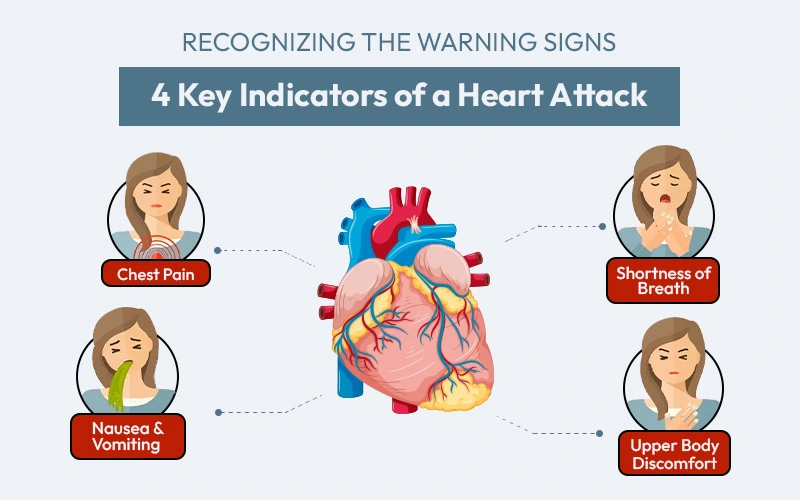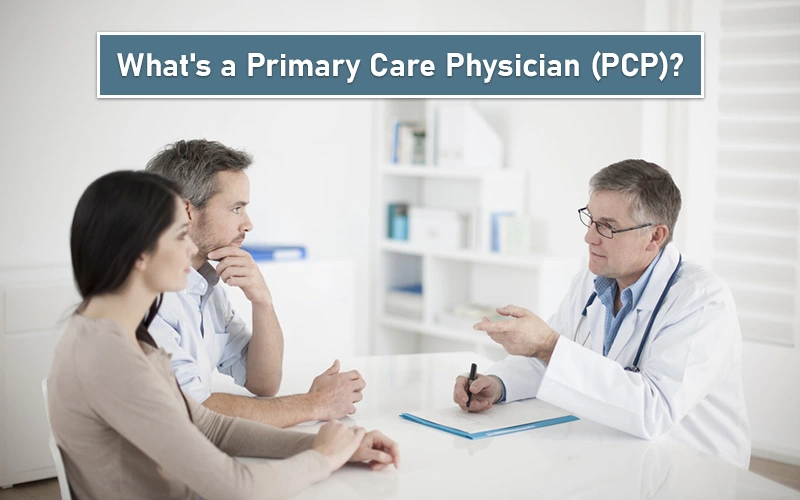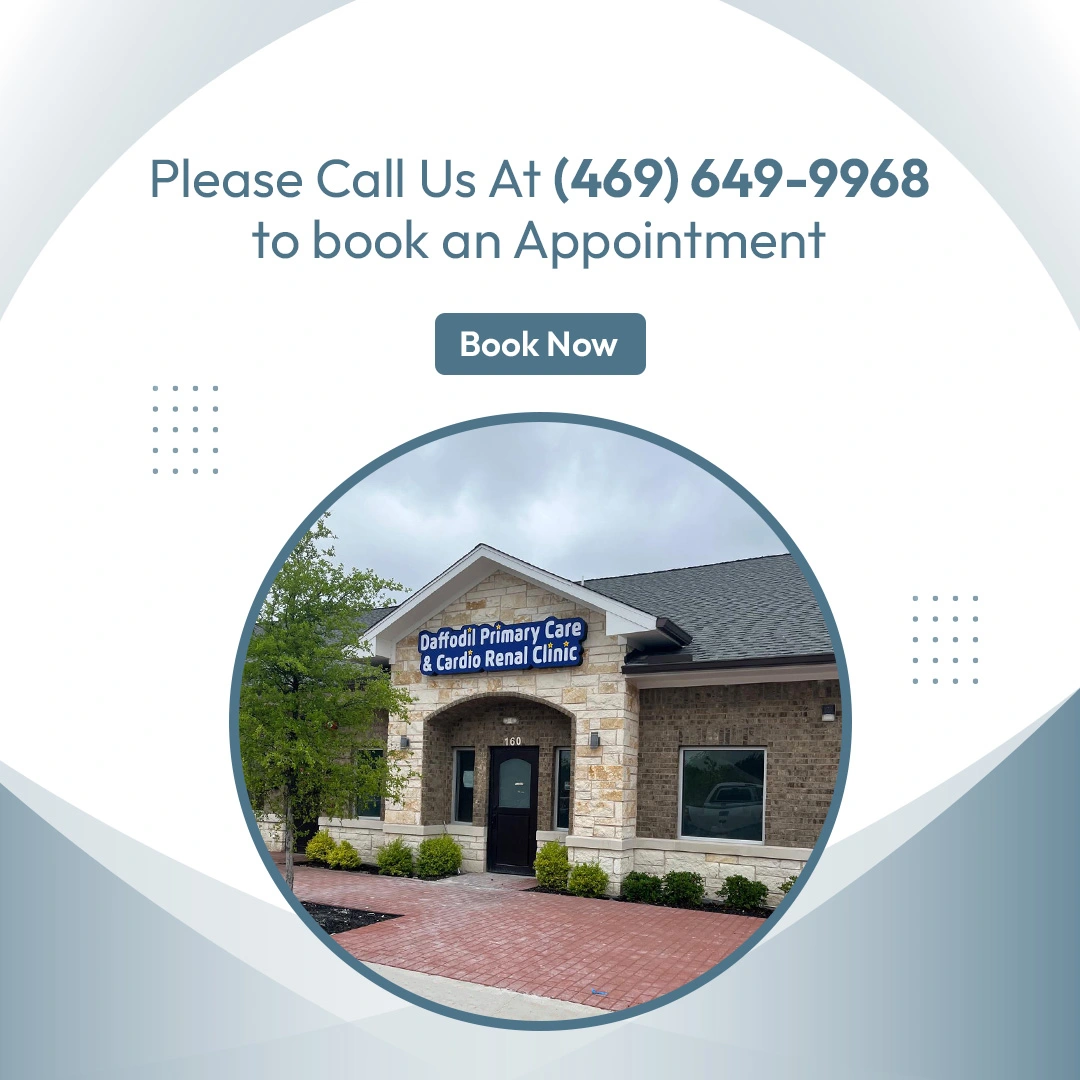Heart attacks are a leading cause of death worldwide, making it crucial to recognize the warning signs and seek immediate medical attention. A heart attack, or myocardial infarction, occurs when blood flow to a part of the heart is blocked for an extended period, causing damage to the heart muscle. Early detection and prompt treatment can significantly improve outcomes. In this blog, we will discuss the four primary signs of a heart attack that everyone should be aware of.

1. Chest Pain or Discomfort
Chest pain is the most common symptom of a heart attack. This pain, often described as a feeling of pressure, tightness, or squeezing, typically occurs in the center or left side of the chest. It can last for more than a few minutes or go away and come back. It’s important to note that not all heart attacks involve severe pain; sometimes, the discomfort can be mild and may be mistaken for indigestion or heartburn.
Signs to Watch for
- Persistent chest pain or discomfort that lasts more than a few minutes
- Pain that spreads to the shoulders, neck, arms, or back
- A sensation of fullness, squeezing, or heavy pressure in the chest
2. Shortness of Breath
Shortness of breath is another common symptom of a heart attack. It can occur with or without chest discomfort and is often accompanied by a feeling of being winded or struggling to breathe deeply. Shortness of breath can happen suddenly and may persist even while resting.
Signs to Watch for
- Difficulty breathing without physical exertion
- Feeling unusually winded or fatigued after minimal activity
- A sudden onset of breathlessness, especially if it occurs alongside chest pain
3. Upper Body Discomfort
A heart attack can cause pain or discomfort in other parts of the upper body, including the arms, back, neck, jaw, or stomach. This pain can range from mild to severe and is often described as a dull ache, pressure, or squeezing sensation.
Signs to Watch for
- Pain that radiates from the chest to the shoulders, arms, neck, or jaw
- Unexplained discomfort or pain in the upper back or stomach
- A sensation of heaviness or pressure in the upper body
4. Nausea, Lightheadedness, or Cold Sweats
These symptoms are more commonly reported by women experiencing a heart attack but can occur in anyone. Nausea, lightheadedness, and cold sweats can indicate a lack of blood flow and oxygen to the heart, often signaling an impending heart attack.
Signs to Watch for
- Unexplained nausea or vomiting
- Feeling lightheaded, dizzy, or faint
- Breaking out in a cold sweat, particularly if accompanied by other symptoms
Additional Signs to Be Aware Of
While the four primary symptoms listed above are the most common indicators of a heart attack, other, less common signs should not be ignored. These can include:
- Unusual fatigue, especially in women
- Heart palpitations or irregular heartbeats
- A sense of impending doom or anxiety
Preventive Measures
Understanding the risk factors for heart disease and taking preventive measures can help reduce the likelihood of a heart attack. Some key strategies include:
- Healthy Diet: Eat a balanced diet rich in fruits, vegetables, whole grains, lean proteins, and healthy fats.
- Regular Exercise: Aim for at least 150 minutes of moderate aerobic or 75 minutes of vigorous activity each week.
- Avoid Smoking: If you smoke, seek help to quit. Avoid exposure to secondhand smoke as well.
- Regular Check-ups: Regularly visit your healthcare provider for check-ups and screenings to monitor your heart health and manage any risk factors like high blood pressure, high cholesterol, and diabetes.
Conclusion
Recognizing the signs of a heart attack and taking immediate action can be life-saving. By understanding these key indicators and being proactive about your heart health, you can significantly reduce your risk of serious complications. At Daffodil Primary Care & Cardio-Renal Clinic in Frisco, TX, our experienced heart specialist is dedicated to providing comprehensive cardiovascular care. If you have any concerns about your heart health or need more information, please don’t hesitate to contact us or schedule an appointment. We offer same-day appointments and welcome walk-ins for your convenience.







